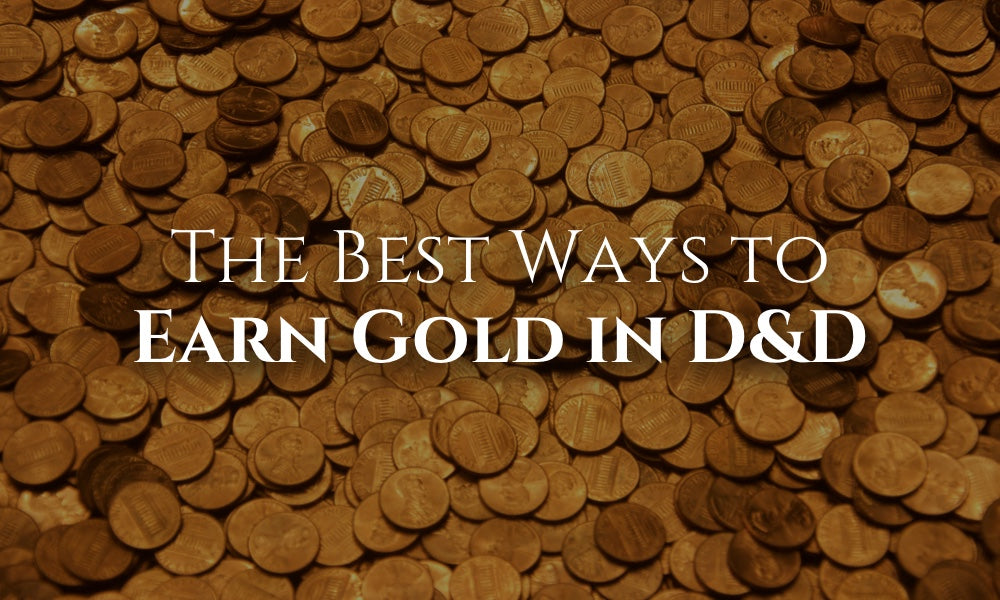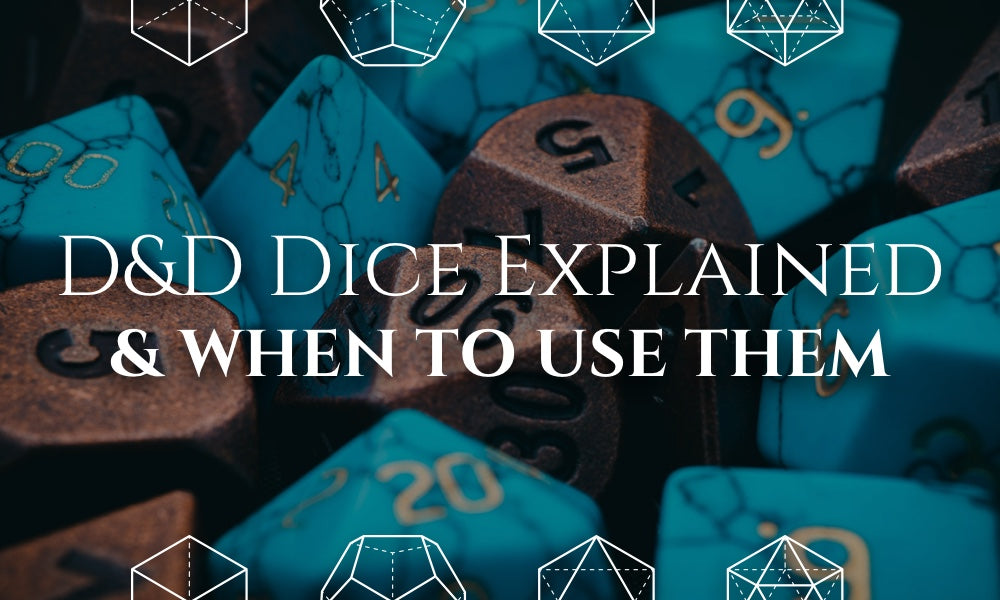
The Best Ways To Earn Gold Coins in Dungeons and Dragons
Dungeons & Dragons is a game where players take on the roles of characters in a fantasy world, exploring and adventuring together.
One of the key mechanics of the game is the accumulation of gold pieces (GP), which can be used to buy gear, spells, and other items that help your character on their adventure.
Firstly, it's good to anchor ourselves in what the value of money is in D&D. How much a normal person would be likely to earn and how much it would cost an individual to live in a D&D setting.
A normal person's salary would likely vary based on their occupation and location. For example, a farmer or a shopkeeper might earn only a few copper or silver coins per day, while a skilled craftsman or a merchant could earn several gold coins per day. Adventurers and heroes, depending on their reputation and the nature of their missions, could earn anywhere from a few gold coins to several platinum coins per day.
As for the cost of living, it would depend on the lifestyle one wishes to maintain. A simple life in a small village or town might cost only a few copper coins per day, while a more lavish lifestyle in a large city might cost several gold coins per day.
Factors such as the quality of food, housing, and clothing, as well as the availability of luxuries, would play a role in determining the cost of living. For example, living in a wealthy neighborhood with access to expensive shops and services would cost more than living in a rural area with limited resources.
Now, let's explore why a player might wish to earn some additional coin in D&D.
Why Earn Gold in D&D
It's fare to say that, in the vast majority of Dungeons and Dragons campaigns, collecting in game money isn't something which is a focus of the game. Rather, it is often a given that Gold will be accumulated at an appropriate rate while progressing through the story without detour.
What's the problem with that?
Nothing exactly, but we believe that it can detract from the realism of the world and can rob the players of some excellent role-play opportunities.
So, why does it detract from the realism? Money is the fundamental fungible commodity in reality and in D&D. If there is a horde of gold enough to buy a legendary sword or a small village just sitting in a cave behind the guard of a few clumsy goblins who can be easily dispatched by a few level 3s, you can bet your last Copper piece that it wouldn't be there for long.
Adventurers might be rare in your or your DMs setting but even a group of farmers can easily challenge a bugbear or two, given the reward is great enough.
If your party can easily stumble across copious amounts of gold in their day-to-day adventuring and surpass the local Lord in wealth in a matter of days, then something is off.
But, we don't want to force our players to be paupers. So, we can give them additional opportunities to earn gold along the way in their journey.
In this blog post, we'll explore the best ways to earn GP as a player as well as the best ways to reward gold as a DM.
Earning Gold as a Player:
Firstly, it's important to not that Dungeons and Dragons isn't a static video game. There are no concrete best ways to do anything as everything in D&D is a creation between the DM and players.
So, our first tip is to communicate with your DM that you want to earn more GP and why. This will allow them to prepare appropriate avenues for you to achieve this and will avoid frustration on the side of your and your DM.
That said, we'll start with our suggestions for the players only. These ideas should require little to no preparation from the DM and will either leverage what is likely already in your campaign or require a little improv from your DM on the spot to accommodate you.
Complete Quests:
The most straightforward way to earn GP is by completing quests for NPCs, who will reward you with gold and possibly other rewards such as magical items. For example, a local lord might offer a quest to retrieve a stolen artifact, promising a hefty sum of GP as a reward. Alternatively, a village might offer a reward for clearing out a nearby monster lair that has been terrorising the area.
Be aware of hints that your DM might drop about potential jobs and quests. Maybe your character isn't specifically interested in doing good but perhaps the coin will help motivate them.
Sell Loot:
Any treasure that you find on your adventures can be sold to merchants for GP. For example, a group of adventurers might find a chest filled with gems and precious metals that they can sell for a high price. Artefacts and magical items can also fetch a high price from the right buyer.
Skills:
Characters with marketable skills like alchemy, blacksmithing, or even performance can earn GP by putting those skills to use. A bard with a high performance skill might be able to earn GP by performing at taverns and inns. An alchemist might be able to sell potions and other items that they create.
Investments:
Okay, hear me out. I know people don't play D&D to make prudent investments with the earnings and max out the tax exempt pension contributions. But investing property, business or items can be a great way not only to grow wealth in D&D but also contributes to a plethora of role-play opportunities.
Adventures can often be waifs with no ties to normal, settled life. But buying up a part of land or investing some into the growth of a business can give your character financial and emotional ties which your DM can use to create compelling story hooks in a campaign.
For example, a wizard might invest in a potion shop, using their skills to create and sell potions while on the road and then unloading them at a great price when back at their business.
Delivering Gold as a DM:
Quests:
Offer quests and challenges to your players and reward them with GP upon completion. For example, a local lord might ask the players to investigate a series of disappearances in the nearby village, offering a reward for their help. Alternatively, a wizard might offer a quest to retrieve a powerful spellbook, promising a large sum of GP as a reward.
Treasure:
Place treasures and valuable items in the world for the players to find. For example, the players might discover an ancient temple filled with gold and precious artefacts, guarded by powerful creatures.
As we mentioned at the top, we don't recommend putting these directly in the path of the players. But tuck them away out of site, give the players a hint and see if they take it. Let them work a little extra to get the full reward.
Rewards for Role-Playing:
This one could be viewed as a bit meta but offering GP rewards for players who role-play their characters well can make the story more immersive. For example, a player might receive a reward for playing their character's personality to the fullest, such as a greedy rogue who always looks for ways to turn a profit.
Combat Encounters:
Reward players with GP for defeating challenging enemies in combat. For example, the players might earn a large sum of GP for defeating a powerful dragon, or a group of dangerous bandits.
When it comes to giving out GP, it's important to balance rewards with the difficulty of the task. A tough quest or a dangerous enemy might be worth a large amount of GP, while a simple task might be worth less. Additionally, consider the wealth of your players' characters. It wouldn't be fair to reward a low-level character with a large sum of GP if it would make them wealthier than a higher-level character in the party.
Earning GP in D&D is an important aspect of character progression and can greatly enhance the player's experience. While many games will not require you to focus on earning gold specially, the desire for wealth is almost universal and can align your characters motivations, giving rise to many a role-playing opportunity. By using a combination of quests, loot, skills, treasure hunting, investments, and rewards, players and DMs can work together to create a rich and exciting gaming environment.


